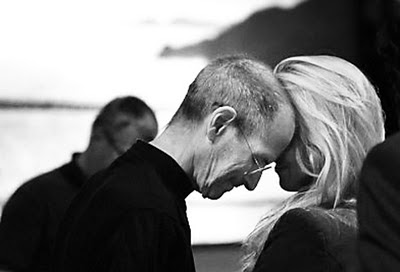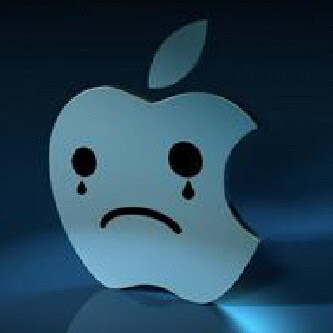
Since he revealed in an email from a hospital bed in 2004 that he had a rare form of pancreatic cancer, Apple CEO Steve Jobs' health became a topic of intense interest. The picture that emerged from subsequent news reports was a patchwork of details that introduced many to the idea that one could live for years with a pancreatic tumor, unlike actor Patrick Swayze, opera legend Luciano Pavarotti and journalist Dith Pran.
"With what was reported to be his type of pancreatic cancer, which was a neuroendocrine tumor, seven years [of survival] is not uncommon," said Dr. Baburao Koneru, chief of the Division of Hepatobiliary Surgery at UMDNJ-The University Hospital in Newark, N.J. "It's quite different from the common form of pancreatic cancer."
"These tend to be slow-growing tumors," said Dr. Steven Libutti, director of the Montefiore Einstein Center for Cancer Care in New York.
While much of Jobs' journey through cancer was swathed in secrecy, other elements of his experience became very public – even if often speculative. Below is a timeline of media reports on Jobs' health:
August 2004: Jobs, 49, told Apple employees in an email that he had been diagnosed with a cancerous tumor in his pancreas and had undergone a successful operation to remove it.

"I have some personal news that I need to share with you, and I wanted you to hear it directly from me," the email read. "I had a very rare form of pancreatic cancer called an islet cell neuroendocrine tumor, which represents about 1 percent of the total cases of pancreatic cancer diagnosed each year, and can be cured by surgical removal if diagnosed in time (mine was). I will not require any chemotherapy or radiation treatments.''
(In truth, statistics indicate that pancreatic neuroendocrine tumors account for 2,000 to 3,000 of an estimated 44,000 cases of pancreatic cancer diagnosed each year.)
It was later revealed that Jobs had been diagnosed in 2003 with the cancer, but he chose not to reveal this to investors at the time.
August 2006: At Apple's annual Worldwide Developers Conference Jobs appeared thin and gaunt. Rumors of his death began to swirl around the Internet and in the media. An Apple spokesperson, however, said "Steve's health is robust."
June 2008: Again appearing gaunt at the annual WWDC, Jobs' health soon became a hot topic. Investors began to worry about the state of Apple, especially because its CEO had such a "hands on" approach. Although initially reps said Jobs was suffering from "a common bug," a New York Times reporter wrote that after speaking with Jobs, "his health issues have amounted to a good deal more than 'a common bug,' [but] they weren't life-threatening and he doesn't have a recurrence of cancer."
At Apple's September 2008 Let's Rock event in San Francisco, Jobs used Mark Twain's oft-cited quote: "Reports of my death are greatly exaggerated." Later he brushed off journalists' questions and soon refused to answer any questions about his health.
January 2009: Explaining his absence at a Macworld event, Jobs issued a statement blaming his noticeable weight loss on a "hormone imbalance."
"My decision to have [Apple marketing chief] Phil Schiller deliver the Macworld keynote set off another flurry of rumors about my health, with some even publishing stories of me on my deathbed. Fortunately, after further testing, my doctors think they have found the cause -- a hormone imbalance that has been 'robbing' me of the proteins my body needs to be healthy."
Alternative Health News
Read More
"With what was reported to be his type of pancreatic cancer, which was a neuroendocrine tumor, seven years [of survival] is not uncommon," said Dr. Baburao Koneru, chief of the Division of Hepatobiliary Surgery at UMDNJ-The University Hospital in Newark, N.J. "It's quite different from the common form of pancreatic cancer."
"These tend to be slow-growing tumors," said Dr. Steven Libutti, director of the Montefiore Einstein Center for Cancer Care in New York.
While much of Jobs' journey through cancer was swathed in secrecy, other elements of his experience became very public – even if often speculative. Below is a timeline of media reports on Jobs' health:
August 2004: Jobs, 49, told Apple employees in an email that he had been diagnosed with a cancerous tumor in his pancreas and had undergone a successful operation to remove it.

"I have some personal news that I need to share with you, and I wanted you to hear it directly from me," the email read. "I had a very rare form of pancreatic cancer called an islet cell neuroendocrine tumor, which represents about 1 percent of the total cases of pancreatic cancer diagnosed each year, and can be cured by surgical removal if diagnosed in time (mine was). I will not require any chemotherapy or radiation treatments.''
(In truth, statistics indicate that pancreatic neuroendocrine tumors account for 2,000 to 3,000 of an estimated 44,000 cases of pancreatic cancer diagnosed each year.)
It was later revealed that Jobs had been diagnosed in 2003 with the cancer, but he chose not to reveal this to investors at the time.
August 2006: At Apple's annual Worldwide Developers Conference Jobs appeared thin and gaunt. Rumors of his death began to swirl around the Internet and in the media. An Apple spokesperson, however, said "Steve's health is robust."
June 2008: Again appearing gaunt at the annual WWDC, Jobs' health soon became a hot topic. Investors began to worry about the state of Apple, especially because its CEO had such a "hands on" approach. Although initially reps said Jobs was suffering from "a common bug," a New York Times reporter wrote that after speaking with Jobs, "his health issues have amounted to a good deal more than 'a common bug,' [but] they weren't life-threatening and he doesn't have a recurrence of cancer."
At Apple's September 2008 Let's Rock event in San Francisco, Jobs used Mark Twain's oft-cited quote: "Reports of my death are greatly exaggerated." Later he brushed off journalists' questions and soon refused to answer any questions about his health.
January 2009: Explaining his absence at a Macworld event, Jobs issued a statement blaming his noticeable weight loss on a "hormone imbalance."
"My decision to have [Apple marketing chief] Phil Schiller deliver the Macworld keynote set off another flurry of rumors about my health, with some even publishing stories of me on my deathbed. Fortunately, after further testing, my doctors think they have found the cause -- a hormone imbalance that has been 'robbing' me of the proteins my body needs to be healthy."
Alternative Health News
Read More
No comments:
Post a Comment